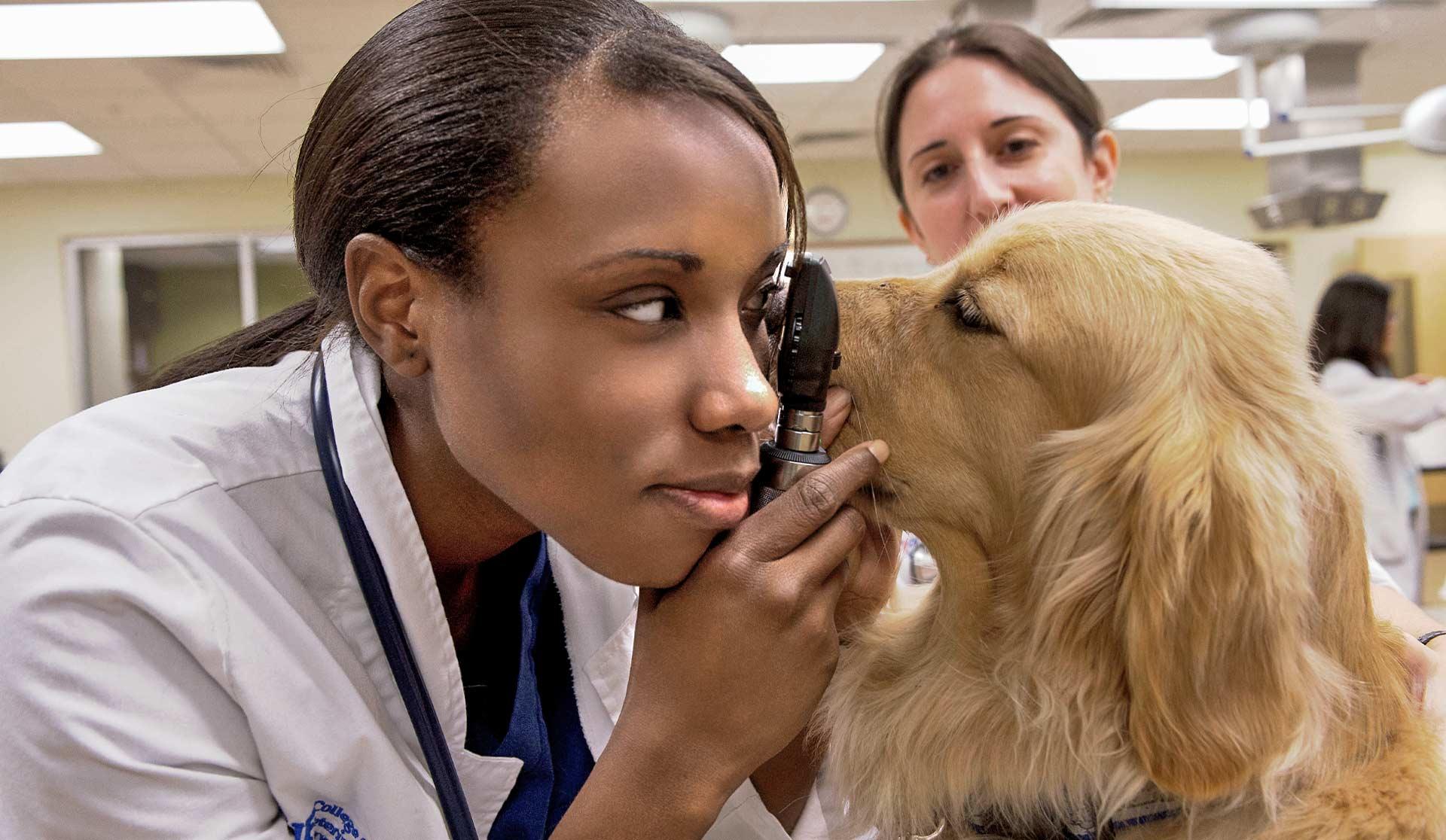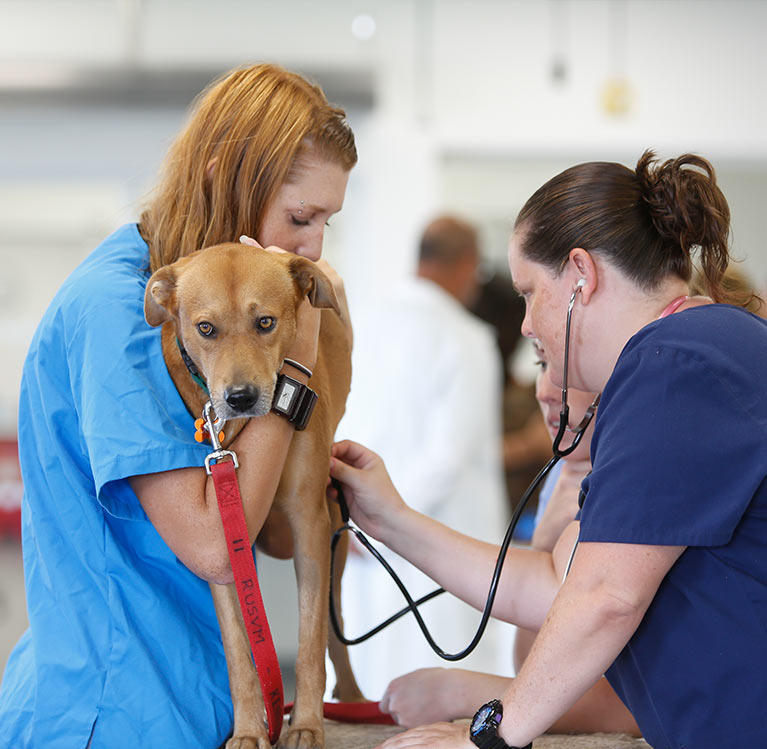Just How a Veterinary Oncologist Can Assist Improve Your Family pet's Top quality of Life
Veterinary oncologists focus on the medical diagnosis and treatment of cancer in animals, playing an essential function in enhancing their lifestyle. They develop individualized therapy plans that attend to the special needs of each pet. Via innovative diagnostics and targeted treatments, these professionals intend to take care of signs and symptoms efficiently. The journey does not end there. Checking out the full range of treatment alternatives reveals even more about just how these professionals can make a significant distinction.

Recognizing the Role of a Veterinary Oncologist

Along with medical diagnosis, veterinary oncologists create detailed treatment strategies tailored to the demands of each family pet. These techniques might include radiation treatment, radiation therapy, and medical treatments, aimed at not just extending survival yet likewise enhancing the general lifestyle. They provide palliative treatment, focusing on pain monitoring and comfort for family pets encountering incurable diagnoses. By collaborating with animal owners, veterinary oncologists ensure that pet dogs obtain one of the most thoughtful and effective care feasible during their cancer trip.
Tailored Treatment Prepare For Your Family pet
When a pet is diagnosed with cancer cells, creating a customized therapy plan comes to be necessary for addressing their one-of-a-kind requirements and situations. A vet oncologist very carefully examines the type of cancer, its phase, and the total health and wellness of the pet dog. This complete analysis enables the creation of a customized method that may include a combination of radiation, surgery, and radiation treatment therapy.
The oncologist likewise takes into consideration the pet owner's choices and way of life, making certain that the strategy straightens with their goals for their animal's treatment. Veterinary Oncologist. Therapy strategies are not fixed; they are frequently assessed and readjusted based upon the animal's feedback and any arising demands. By focusing on customized care, veterinary oncologists intend to enhance the efficiency of therapies while maintaining the family pet's lifestyle. This individualized strategy fosters a much better understanding of the condition, equipping family pet owners to make educated choices concerning their beloved friends' health
Taking Care Of Signs and Negative Effects
Managing the signs and symptoms and side effects of cancer treatment is a vital component of veterinary oncology. Vet oncologists utilize a selection of techniques to relieve discomfort and improve the overall well-being of animals undertaking treatment. This may consist of using anti-nausea medications to fight throwing up and anorexia nervosa, which prevail side results of radiation treatment. Pain administration is additionally prioritized, typically entailing the prescription of analgesics tailored to the animal's certain demands.
Additionally, oncologists may suggest nutritional changes, incorporating top notch, conveniently digestible foods to sustain dietary consumption. Checking blood job is essential to spot any type of negative responses to therapy early, enabling prompt treatments. Regular follow-ups allow the vet group to assess the pet's reaction to treatment and make needed changes. Via these thorough approaches, vet oncologists intend to boost the lifestyle for pets facing cancer cells therapy difficulties.
Palliative Treatment and Comfort Measures
Palliative care plays an essential role in boosting the lifestyle for pets diagnosed with cancer, concentrating on comfort and emotional assistance rather than alleviative therapy. Veterinary oncologists prioritize discomfort management, ensuring that pet dogs experience minimal discomfort throughout their illness. This includes the usage of analgesics, anti-nausea medicines, and various other treatments tailored to private demands.
Along with medicinal treatments, environmental adjustments can significantly boost a pet's high quality of life. Developing a tranquility, comfortable space with soft bed linen and very easy accessibility to food and water can minimize anxiety. Nutritional assistance is additionally important; oncologists may suggest customized diet regimens that accommodate the pet's needs and preferences.
Psychological assistance for both the pet dog and its owners is vital. Veterinary oncologists give guidance on coping approaches, assisting family members browse the psychological challenges that go along with a cancer diagnosis. Inevitably, palliative care purposes to guarantee that family pets obtain the self-respect and comfort they deserve.
Working together With Your Normal Vet
Partnership with a regular veterinarian is necessary for enhancing the treatment of animals with cancer, as this collaboration guarantees a comprehensive strategy to therapy and lifestyle. The routine veterinarian usually has a comprehensive understanding of the pet's case history, which is vital when creating a therapy plan. They can effectively connect Board Certified Veterinary Oncologist with the veterinary oncologist, ensuring that all facets of the animal's health and wellness are thought about.
This partnership permits collaborated care, which may include regular check-ups, monitoring negative effects, and adjusting medications as required. Normal vets can likewise offer emotional support to pet proprietors, aiding them browse the complexities of cancer therapy - Board Certified Veterinary Oncologist. By working closely with vet oncologists, they can assist in a seamless shift in between different kinds of treatment, making certain that family pets get the most reliable treatments while maintaining their convenience and wellness throughout the process. With each other, they improve the overall lifestyle for family pets facing cancer cells
Often Asked Questions

What Kinds of Cancers Do Vet Oncologists Typically Treat in Pets?
Vet oncologists typically deal with numerous cancers cells in pet dogs, consisting of lymphoma, pole cell growths, osteosarcoma, and soft tissue sarcomas. These experts employ advanced diagnostic strategies and therapy alternatives to attend to the certain requirements of each animal.
How Can I Prepare My Pet for a Vet Oncology Visit?
Preparing an animal for a veterinary oncology consultation entails event medical documents, keeping in mind signs, and preparing questions. Ensuring the pet dog is comfortable and tranquil during travel can also greatly boost the general experience and examination efficiency.
Are There Any Kind Of Alternate Therapies for Family Pets With Cancer cells?
Alternative treatments for family pets with cancer cells typically include acupuncture, organic medication, and nutritional assistance. These techniques might complement standard treatments, possibly enhancing overall wellness and giving supportive care during the family pet's cancer trip.
Just how Typically Should My Pet Dog See the Vet Oncologist?
The regularity of brows through to a veterinary oncologist normally relies on the pet dog's specific condition and treatment plan. Regular assessments may be recommended every few weeks or months to monitor progress and adjust treatments accordingly.
What Costs Are Related To Vet Oncology Solutions?
Expenses connected with vet oncology solutions can differ extensively, including preliminary examinations, analysis tests, treatment plans, and continuous care. Veterinary Oncologist. Animal owners ought to prepare for potential expenditures that mirror the intricacy and duration of the therapy required
Veterinary oncologists specialize in the diagnosis and therapy of cancer in family pets, playing a crucial function in boosting their top quality of life. Numerous family pet proprietors might not be acquainted with the complexities of veterinary oncology, recognizing the duty of a veterinary oncologist is important for managing cancer cells in family pets. The oncologist likewise thinks about the family pet proprietor's preferences and lifestyle, ensuring that the plan straightens with their goals for their pet's care. By concentrating on individualized care, veterinary oncologists aim to boost the efficiency of treatments while preserving the pet's high quality of life. By functioning very closely with veterinary oncologists, they can promote a smooth shift between various kinds of care, making certain that animals get the most efficient therapies while maintaining their comfort and health throughout the process.